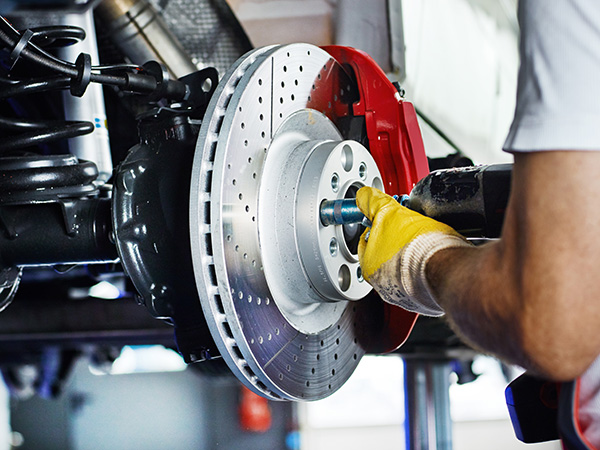
Modern vehicles rely heavily on electronic systems to help keep you safe, and few are more important than the anti-lock braking system (ABS). While it works silently in the background most of the time, it steps in when you need it most, especially during hard stops or on slick roads. If your ABS light is on or you’ve noticed changes in how your brakes feel, it could point to a problem in either the ABS or the hydraulic brake system.
At first glance, it might seem like a small warning, but ignoring it can compromise your vehicle’s stopping power and control. Especially in the wet or unpredictable weather that drivers in Chantilly often face, it’s not something you want to put off.
Understanding How the ABS System Works
The ABS helps prevent your wheels from locking up during hard braking. It uses sensors at each wheel to detect wheel speed and a control module to pulse the brakes when necessary. This pulsing allows the driver to maintain steering control, which is critical in emergencies or on slippery roads.
ABS doesn’t replace your regular braking system. Instead, it’s an enhancement that activates only when needed. If it malfunctions, your brakes will still work, but the added safety layer is gone, and that can make a big difference when stopping in less-than-ideal conditions.
What Triggers the ABS Warning Light
When the ABS light turns on, it means the system has detected a fault. This could be due to a faulty wheel speed sensor, a damaged tone ring, or a problem in the ABS control module. Sometimes, the issue is as simple as a dirty sensor or loose wiring, but it can also point to deeper problems like hydraulic fluid contamination or an internal failure in the control unit.
The light might stay on constantly, or it could flash intermittently. In either case, a diagnostic scan is necessary to read the trouble codes and pinpoint the issue. Ignoring the light risks losing ABS support entirely and masking other potential braking concerns.
Hydraulic System Issues Affect Braking Performance
The brake hydraulic system is what actually applies the stopping force to your wheels. It works by pushing brake fluid through lines to calipers or wheel cylinders, which then press brake pads or shoes against the rotors or drums. If there’s a leak, air in the system, or degraded fluid, braking power is reduced, and the pedal may feel soft or spongy.
In more severe cases, a failing master cylinder or ABS hydraulic control unit can affect brake balance between the front and rear wheels. That can lead to longer stopping distances or uneven braking, which not only feels unsafe but can also cause other components to wear unevenly.
What a Proper Diagnosis Involves
When you bring your vehicle in with an ABS or hydraulic concern, technicians begin with a full inspection. This includes checking the brake fluid level and condition, inspecting the brake pads and rotors, and scanning the ABS for fault codes. If the issue is sensor-related, individual wheel speed sensors will be tested for signal strength and continuity.
In cases of hydraulic concerns, the system can be pressure-tested to identify internal leaks or restricted flow. Technicians also check for contamination, which often shows up as dark or cloudy fluid. If necessary, they’ll bleed the system to remove air pockets and restore proper pedal feel.
Preventative Measures Go a Long Way
Routine brake maintenance helps prevent many ABS and hydraulic issues before they start. Flushing the brake fluid at the recommended interval is one of the most important steps. Brake fluid absorbs moisture over time, which lowers its boiling point and invites corrosion in lines and valves.
Keeping an eye on brake pad thickness and replacing them before they’re completely worn helps preserve the rest of the system. Uneven wear can cause imbalances that stress the ABS and reduce control.
Let Foreign Auto Services in Chantilly, VA, Keep You Safe
Brake performance should never be left to chance. If you’ve noticed a warning light, spongy pedal, or inconsistent stopping power, it’s time to act. Getting a professional diagnosis and repair ensures you’re not just relying on assumptions—it means your braking system is working the way it should.
Call Foreign Auto Services in Chantilly, VA, today to schedule a brake inspection. Whether it’s an ABS issue or a hydraulic concern, we’ll identify the cause and get you back on the road with confidence.